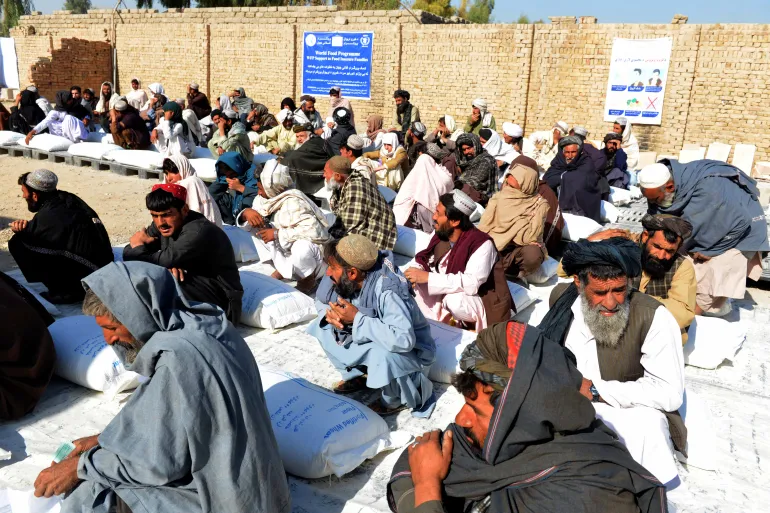Amina Mohammadi, a 34-year-old Afghan widow from the northern Afghan city of Mazar-i-Sharif, is among millions of Afghans reliant on rations provided by the World Food Programme (WFP).
But the mother of four is now worried about how to feed her children after the UN food agency last month announced drastic cuts in food assistance.
The WFP has warned that if donors do not pledge new funds, the agency will not have the resources to carry out any food assistance by June.
“Our food distributions will drop from 13 million people in March to nine million people in April and five million people in May down to zero in June and onwards,” Philippe Kropf, the head of communications at WFP, told Al Jazeera.
Last month, the WFP, which provides food assistance to more than 20 million Afghans, said a severe shortage of funds forced it to drastically reduce its food assistance to the South Asian country facing a humanitarian crisis.
“The country is at the highest risk of famine in a quarter of a century and WFP’s food assistance is the last lifeline for millions of Afghans,” Hsiao-Wei Lee, WFP country director in Afghanistan, said in a statement last month.
Six million Afghans, the UN agency warned, are one step away from famine.
“Since November last year, the WFP in Afghanistan had been warning that funds would run out. Now faced with funding shortfalls, WFP had to start to reduce its lifesaving assistance to millions of people across the country,” Kropf said.
Women-led households
The UN agency needs nearly $800m to run its food assistance programme in the country for the next six months, Kropf said.
Kropf explained that the organisation initially reduced the quantity of assistance to some of the recipients, providing them with two weeks of food per month, as opposed to the previous ration that was sufficient for three weeks.
Read full story on Al Jazeera
